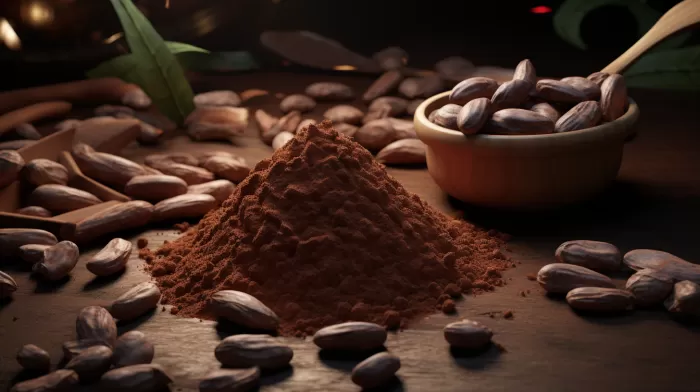Wow, the response to my post last week on cacao, the superfood to beat statins, was amazing! But I’m not really surprised…
I hear from my own patients quite often that, when possible, they’d like to learn more about how to improve or manage their conditions using food as medicine. And I’m more than happy to share what I’ve learned along my own path to natural health, balanced against what I learned in medical school and real-life applications in my health practice.
Now that you know what cacao can do for cholesterol, let me share other benefits that will have you adding cacao to your coffee like I did this morning…
1. Cacao for improved cognitive function
There is increasing evidence that regular consumption of cacao promotes brain health and reduces your risk of neurodegenerative disorders in the aging population. We know there is a complex array of phytochemicals in cacao beans, much like coffee beans and tea leaves.
In particular, one class of phytochemicals called methylxanthines are present in high amounts and are known to improve neuroplasticity and nerve health. Caffeine is actually one of those phytochemicals and it clearly promotes sustained cognitive performance and is even neuroprotective against damage in animal models of Alzheimer’s disease, Parkinson’s disease, and stroke.
What’s more, cacao contains high concentrations of flavan-3-ols (which include catechins you read so much about in relation to green tea) and their derivatives with proven benefits on dementia prevention and cognitive function.
So, when you think of the health benefits of coffee, remember that cacao has far more, especially if you sweeten it with stevia or other fruit extract sweeteners instead of sugar and creamer.
Raw cacao is also an excellent source of magnesium as well, another nutrient that supports its health benefits.
More benefits of cacao: Cacao’s metabolic pathways have now been properly mapped enough to establish its role in diabetes control, immune regulation, inflammation, obesity, and oxidative stress.
2. Diabetes control
Cacao increases the uptake of glucose from the bloodstream across the cell membrane and into the cells of skeletal muscle.
3. Immune regulation
Cacao lowers immunoglobulin E release in allergic responses. It can affect the immune response and bacterial growth at intestinal levels.
4. Inflammation
Cacao has been suggested as a way to reduce allergies. That’s because cacao reduces inflammation through the inhibition of the nuclear factor-κB pathway. Nuclear factor NF-κB is a well-established metabolic pathway of inflammation including cytokines, chemokines, and adhesion molecules that trigger proinflammatory genes to be expressed.
5. Obesity
Cocoa promotes weight loss by improving mitochondrial biogenesis.
6. Oxidative stress
Cacao has also been suggested for helping to prevent or treat cancer and reduce oxidative injury (a mechanism behind cancer formation).
7. Blood pressure
Furthermore, cacao lowers blood pressure largely because it is particularly rich in flavanols. Several human clinical trials using flavanol-containing cacao showed not only improved endothelial and platelet function, but lowered blood pressure as well. In one human dietary intervention study, the daily consumption of dark chocolate was associated with a systolic blood pressure reduction of 5.8 mmHg, showing the vascular effects of dark chocolate flavanols. Authors suggested that “…the regular consumption of cocoa products containing flavanols may reduce risk of CVD.”
With benefits like these, it just makes sense to enjoy raw cacao powder regularly. If you’d like to know more ways to incorporate it into your diet, fully understand the difference between cacao and cocoa, as well as discover some healthier holiday treat recipes, check out this link to nuts.com. I’m not affiliated with the site, nor do I endorse it — they just have some good information and tasty suggestions for enjoying this superfood.



